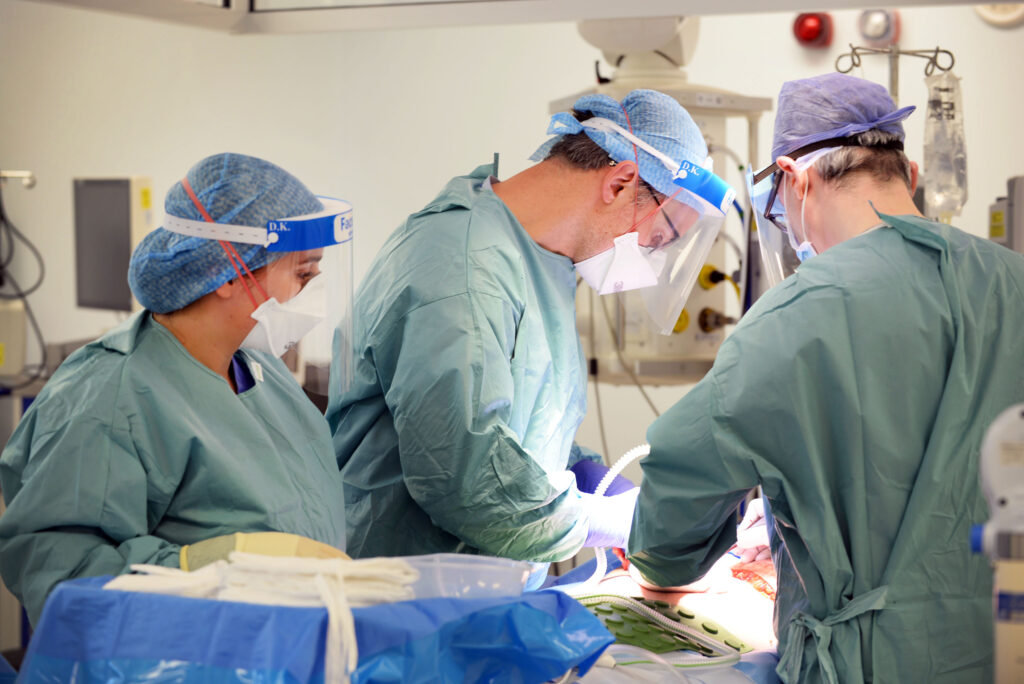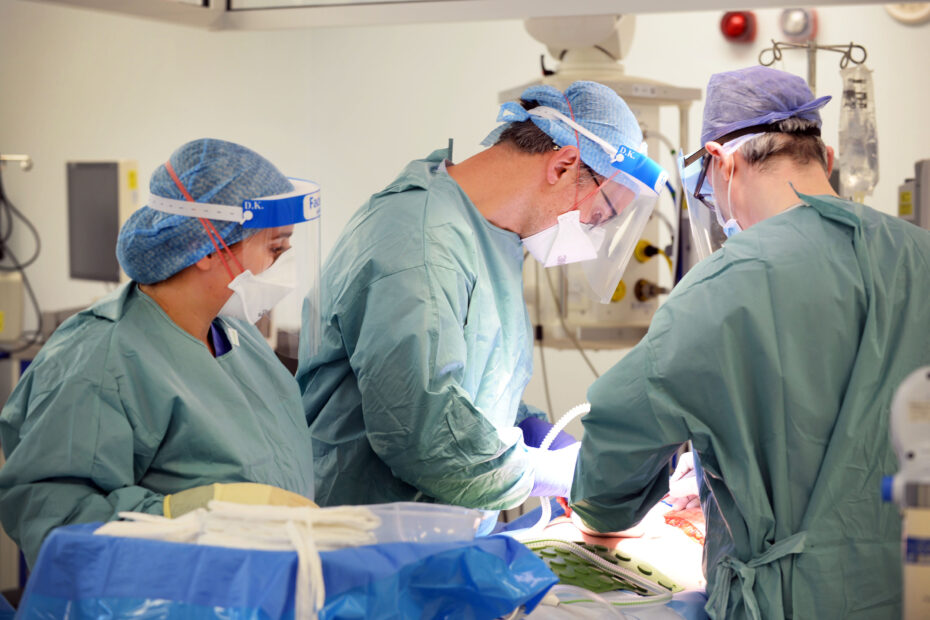
NHS Greater Glasgow and Clyde is striving to make a significant contribution to its net-zero goals and save hundreds of thousands of pounds a year into the bargain – simply by remembering to “turn the lights off and heating down” in unused operating theatres.
The health board is the largest in Scotland, caring for a core population of 1.3 million people and providing highly specialised regional and national services for people throughout the country, and it has more than 100 operating theatres across its eight sites.
Each theatre has a high-volume ventilation system (HVAC) installed, to replace the air in theatres every few minutes to help keep patients safe. The systems are energy-intensive and simply by managing them efficiently during low demand periods NHSGGC could make significant savings, both in financial terms and in reducing carbon emissions.
Dr Malcolm Watson, Consultant Anaesthetist and co-chair of NHSGGC’s Clinical Sustainability Working Group, said: “We all grew up being told to switch the lights off and regulate the heating in our homes, so for NHSGGC it’s simple common sense to apply that principle in saving energy in our operating theatres.
“By turning HVACs off, in conjunction with other simple measures, NHSGGC is projected to save more than £750,000 a year, based on conservative estimates.
“And in addition to these significant financial savings, the change will reduce carbon emissions by around 1,700 tons every year, making a significant contribution to NHSGGC’s net zero goals.”
A pilot scheme is being set up this month, involving two theatres, where it will be possible to closely monitor energy savings and infection control standards.
The ultimate aim is to build controlled management of the HVAC into theatres’ normal routines, either by introducing manual protocols, or by installing automatic switches that turn the system on and off by sensing body heat within the theatre.
Allan Lamb, Energy Manager at NHS Greater Glasgow and Clyde, who along with colleagues from NHSGGC’s Estates team has been working on collecting the data, said: “We have been retrieving data from selected theatre HVAC systems and, where possible, have applied cost and emissions factors to allow us to gauge the level of savings.
“As well as working to manage the HVAC systems, we have implemented a number of other measures, including replacing the lighting, and we hope that these simple measures can be rolled out resulting in considerable financial savings and emission reductions.”
Martin Johnston, Head of Sustainability at NHS Greater Glasgow and Clyde, said: “NHSGGC is committed to sustainability and achieving net zero, and this HVAC initiative is part of the national Green Theatre Programme, to save energy, improve sustainability and help cut carbon emissions.
“It demonstrates clearly how employing common sense thinking can often result in significant benefits, for NHSGGC, its patients and its staff. We will monitor the pilot closely, and I am confident we will be able to expand this initiative across our hospitals in due course.”
For more on NHSGGC’s Climate Change and Sustainability Strategy, and NHSGGC’s wider sustainability goals, go to Sustainability – NHSGGC.

